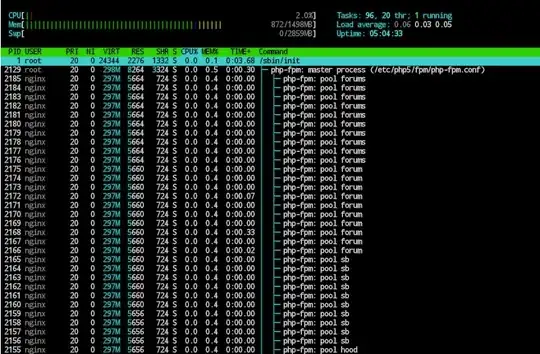The number of children is controlled by the process manager configuration directives in the pool configuration file. I guess the current settings are either pm = static with pm.max_children = 6 or pm = dynamic with pm.start_servers = 6. One process would be the controlling process, the others would be children ready to handle requests. If you only have 5 not 6 children configured, then I must confess I don't know what that last process is used for. On large high-throughput sites, such a configuration with many ready-to-use children makes sense, but in a memory-constrained (probably virtual) environment where you only expects PHP scripts to execute every now and then, a different configuration might be more appropriate.
To achieve this, edit the pool config files and set pm = ondemand. Then children will be created only to handle requests. This will mean less memory consumption while no requests are active, although it might also mean more time required to create a child. The latter can be reduced by choosing a reasonable pm.process_idle_timeout, so that a sane number of php processes remain idle while users can be expected to use them again soon. That “sane number” is controlled by pm.max_children.
Note: This advice is based on my experience with Debian 7, but it should apply to Ubuntu as well.
